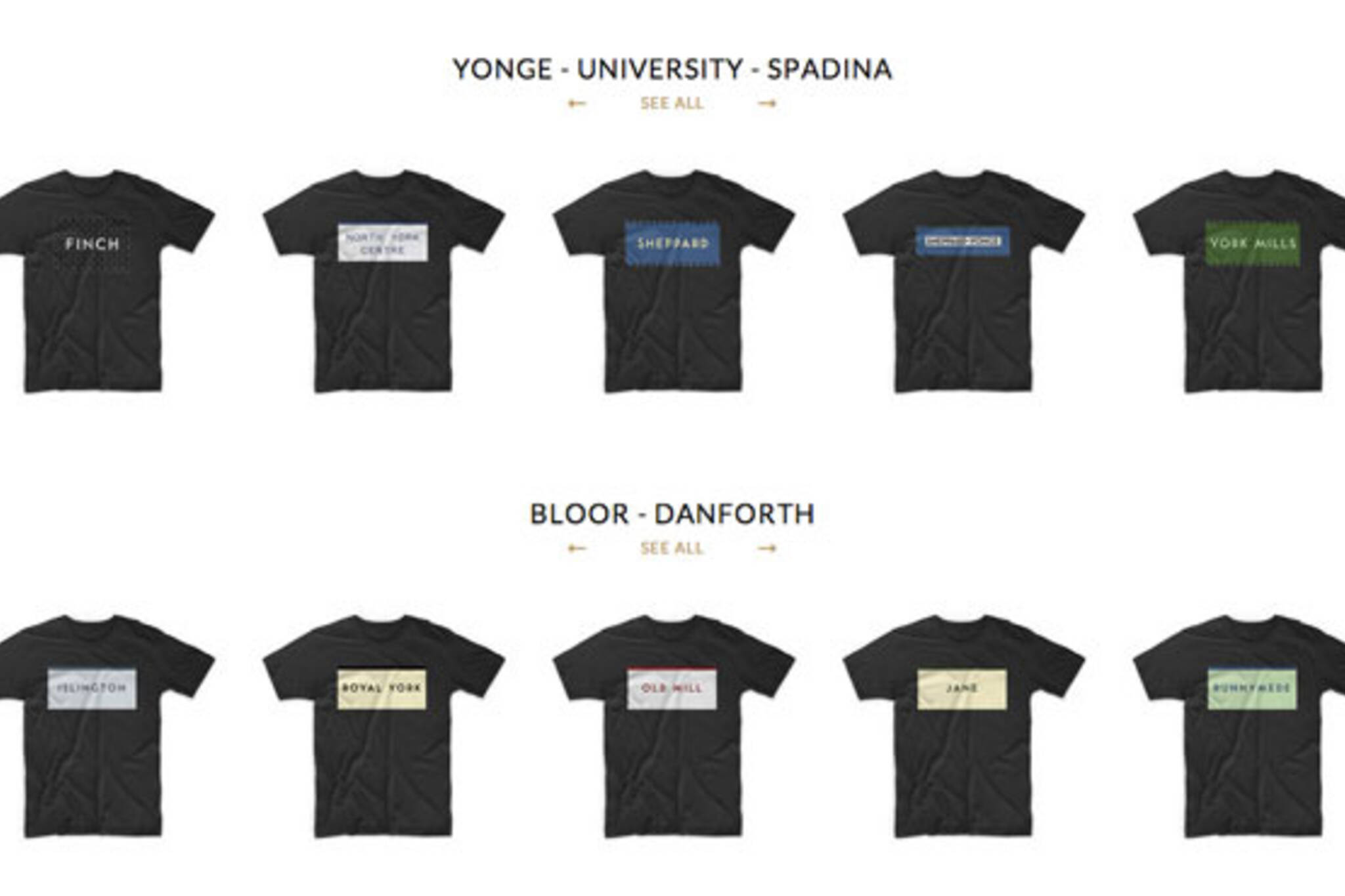
New T-shirt line celebrates original TTC station signage
The original stylings of the TTC subway don't get enough love, frankly. Years of hasty makeovers and unexpected damage, especially on the Yonge line south of Eglinton, have banished much of the original aesthetic to the scrapheap. Happily, the TTC is slowly bringing back some of the original, glossy looks, and now you can wear the good old days thanks to Richard Lazazzera.
Lazazzera launched t-shirt company Finch's earlier this week. "I was looking for a shirt of the station I spent much of my childhood travelling through, Finch," he said in an email. With none available, Lazazzera set about making his own, eventually leading him to start the business.
The designs are based on the original tile configuration of each subway station. College and Dundas are restored to their original English Egg Shell and Primrose tones, ditching the poo-brown and bile yellow tiles currently lining the platform area.
There are also plain white or black neighbourhood t-shirts that borrow the classic TTC subway font. The collection isn't complete (the Spadina and Sheppard lines aren't done yet) but more designs are in the works.
The shirts are a little steep at $34.99, but Lazazzera says the price includes shipping within Canada and a charitable donation to help homeless people.
Chris Bateman is a staff writer at blogTO. Follow him on Twitter at @chrisbateman.
Latest Videos
Latest Videos
Join the conversation Load comments







